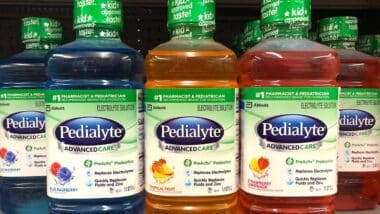 Fluoroquinolones, or quinolones, are a popular group of antibiotics that are some of the most widely prescribed drugs in the nation. And, they are some of the most commonly reported drugs for triggering the dangerous skin reaction Stevens Johnson Syndrome.
Fluoroquinolones, or quinolones, are a popular group of antibiotics that are some of the most widely prescribed drugs in the nation. And, they are some of the most commonly reported drugs for triggering the dangerous skin reaction Stevens Johnson Syndrome.
The result has been product liability lawsuits against various pharmaceutical companies. Among these quinolone antibiotic drugs is Maxaquin, also known as Lomefloxacin.
Maxaquin is a quinolone antibiotic used to treat various bacterial infections, including bronchitis and urinary tract infections. The brand name of this medication is discontinued, but generic versions may be available.
Maxaquin is also used to prevent UTIs prior to surgery. Patients who use Maxaquin to treat a urinary tract infection may be at risk for a deadly skin reaction known as Stevens Johnson Syndrome.
What is Stevens Johnson Syndrome?
Stevens Johnson Syndrome (SJS) is a serious, sometimes life-threatening skin disease. The most common cause of Stevens Johnson Syndrome and related Toxic Epidermal Necrolysis (TEN) is through an allergic drug reaction. Stevens Johnson Syndrome and TEN are mild-to-life-threatening adverse reactions that have been described after exposure to fluoroquinolones or quinolone antibiotics such as Maxaquin.
That is often followed by blistering, usually in places such as the eyes, mouth, nose and genital areas. Mucous membranes become inflamed.
In some cases, a more severe form of SJS, Toxic Epidermal Necrolysis (TEN), may develop. TEN is diagnosed when a victim’s skin also begins to fall off in large amounts.
Quinolones and Stevens Johnson Syndrome
Quinolone antibiotics have been a concern for years over adverse side effects. The Maxaquin fluoroquinolone side effects may cause patients to be hospitalized, and leave victims to contend with numerous long-lasting consequences, such as SJS.
While a rare occurrence, Stevens Johnson Syndrome is devastating when it strikes, often leaving victims scarred and bed-ridden. Additionally, the rarity of Stevens Johnson Syndrome and TEN makes it especially dangerous to patients because doctors often do not recognize the SJS symptoms right away.
SJS symptoms normally appear within the first few weeks of starting the medication, and begin with flu-like symptoms. In almost all cases, Stevens Johnson Syndrome requires hospitalization and patients must be treated the same as burn victims.
While there are no statistics available to specifically address Maxaquin’s likelihood to cause this condition, there have been reported cases that indicate the possible correlation.
Maxaquin Stevens Johnson Syndrome Lawsuits
There are approximately 300 new cases of SJS reported each year, which means it is a very rare occurrence among the billions of American patients. Because this condition is so rare, drug companies that manufacture quinolone antibiotics such as Maxaquin neglect to mention it on their product’s labels.
Do YOU have a legal claim? Fill out the form on this page now for a free, immediate, and confidential case evaluation. The attorneys who work with Top Class Actions will contact you if you qualify to let you know if an individual lawsuit or class action lawsuit is best for you. [In general, quinolone lawsuits are filed individually by each plaintiff and are not class actions.] Hurry — statutes of limitations may apply.
ATTORNEY ADVERTISING
Top Class Actions is a Proud Member of the American Bar Association
LEGAL INFORMATION IS NOT LEGAL ADVICE
Top Class Actions Legal Statement
©2008 – 2025 Top Class Actions® LLC
Various Trademarks held by their respective owners
This website is not intended for viewing or usage by European Union citizens.
Get Help – It’s Free
Join a Free Quinolone Class Action Lawsuit Investigation
If you or someone you know took Cipro, Levaquin, Avelox or another quinolone antibiotic and were diagnosed with liver failure, Stevens Johnson Syndrome (SJS) or toxic epidermal necrolysis (TEN), you may have a legal claim. See if you qualify by submitting your information below for a free and confidential case review.
An attorney will contact you if you qualify to discuss the details of your potential case at no charge to you.
Oops! We could not locate your form.












